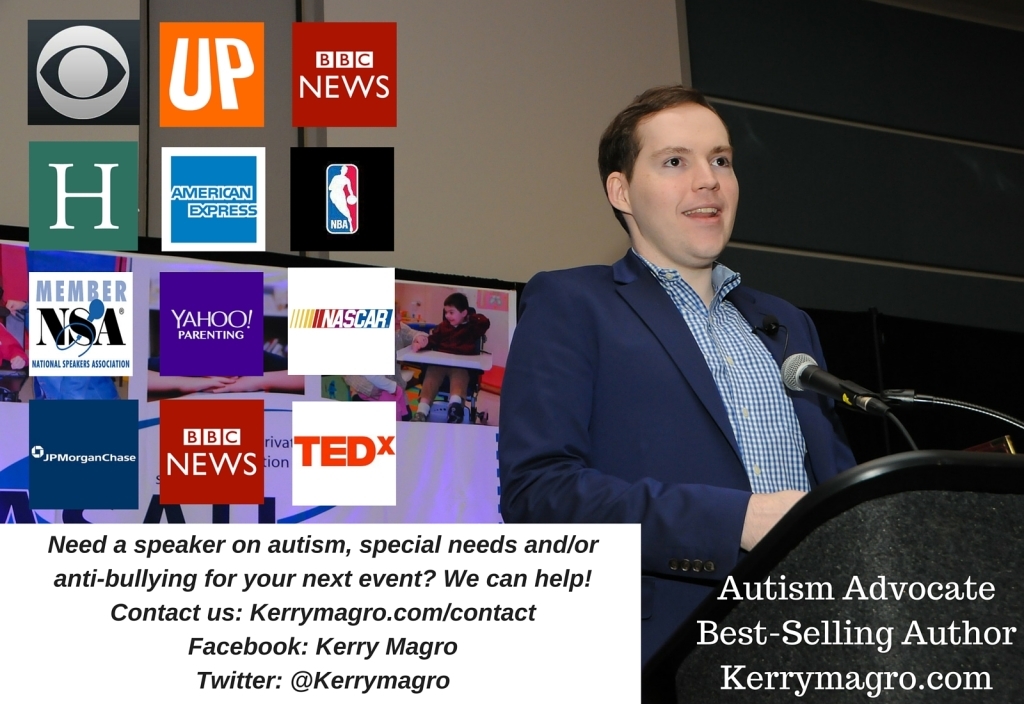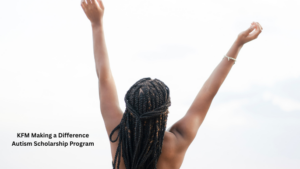This guest post is by Katie Tyree, a young woman on the autism spectrum. Katie will be attending Ouachita Baptist University in the fall majoring in English. Katie is applying for our Spring 2017 Making a Difference Autism Scholarship via the nonprofit KFM Making a Difference. You can read more about the organization and how to apply for our scholarship here.
When I was much younger, I always seemed to be the victim of teasing and isolation from my peers, and I didn’t understand why. I felt like something must have been wrong with me, but I had no idea what was causing me to be the loner in my class until I was around eight years old. I found out that I had been diagnosed with autism and ADHD before I had even started school. From that point on, a major focus of my life was “fighting” my disabilities and somehow living a “normal” life. I did well academically, and as I got older I became involved in an increasing number of activities at school, church, and in the community. I was given many opportunities to practice social skills. With help from parents and counselors, I learned how to navigate a normal life at school. I figured out how to deal with a variety of challenging situations. I used to get upset and have tantrums when something went wrong, but I gradually learned to respond to the event in a calm manner. As I grew up, everyone around me was proud of my achievements. Many people around me must have seen me as someone who overcame the barriers of disability to become their idea of a “success.” Last year, I was given a Medal 4 Mettle for overcoming my challenges. It was one of my proudest moments. However, the struggle with my disability hadn’t really stopped, as some people watching my story on the local news that day might have thought. It continues to this day.
Some days, when my classmates are acting childish, I’m happy to be the outsider. Often, though, I want nothing more than a friend. I often dream of having a group of best friends, just like the people around me. I imagine what it would be like to visit their houses after school, have deep conversations, or text about inside jokes. As much as I want to be close to at least a couple of the people around me, I still remain relatively hidden. I’m afraid that people will reject me if we tried to have a close conversation. I fear that the people around me will never truly understand me. Sure, many of my classmates are nice to me, and some even invite me to join their conversations. I appreciate their kindness, but I wonder if they really want to be my friends or they just feel sorry for me since I look so lonely. I sit by them, listen to them, and laugh at their jokes, but I rarely speak. After the class or camp or youth group meeting ends, I come home alone. The people around me are fun to be around, but even though I want to call them my friends, they’re really just acquaintances. I frequently find myself thinking: do they like me or just accept me?
My experiences with loneliness have fueled many of my goals in life. When I was in elementary school, I started writing short stories. I would imagine myself going on some kind of adventure and make up other characters to be my friends in the story. In the stories, I wasn’t stuck in the role of “that one girl in the background who always watches other people’s conversations but has no real friends.” I could be the hero that saved the school from aliens, or a fearless adventurer who led her classmates into a hole in the playground that turned out to be an underground skating rink. I could be a spy, a famous pop star, or even a queen. I could say whatever I wanted. The paper and computer didn’t judge me. I was free to be me, or I could explore someone else’s world for a few pages. I could create my own story without fear of being teased for being different. Studying classic works of literature in English class inspired me almost as much as my own imagination. The authors of the books, poems, and plays we read used their gift for more than just making a plot. They made readers think about things like greed, racism, love, revenge, and even the meaning of life. They used their gift to spread powerful messages about things that were important to them. They carefully crafted their work to give the reader just the right emotion.
I realized that I could have the same power as those great writers. I could be a hero to someone who feels left out because of an invisible disability. I could let people into my world and show them that they aren’t alone. I decided I was going to study English in college and turn my passion into a career. Getting a college degree will allow me to both get a good job and defy the assumption that people with learning disabilities can’t get higher education. I will be able to set an example for people who may think their disabilities are holding them back.

Kerry Magro, an international motivational speaker and best-selling author started the nonprofit KFM Making a Difference in 2011 to help students with autism receive scholarship aid to pursue a post-secondary education. Help us continue to help students with autism go to college by making a tax-deductible donation to our nonprofit here. Also, consider having Kerry who travels around the country speaking about his journey on the autism spectrum at your next event by contacting him here.














